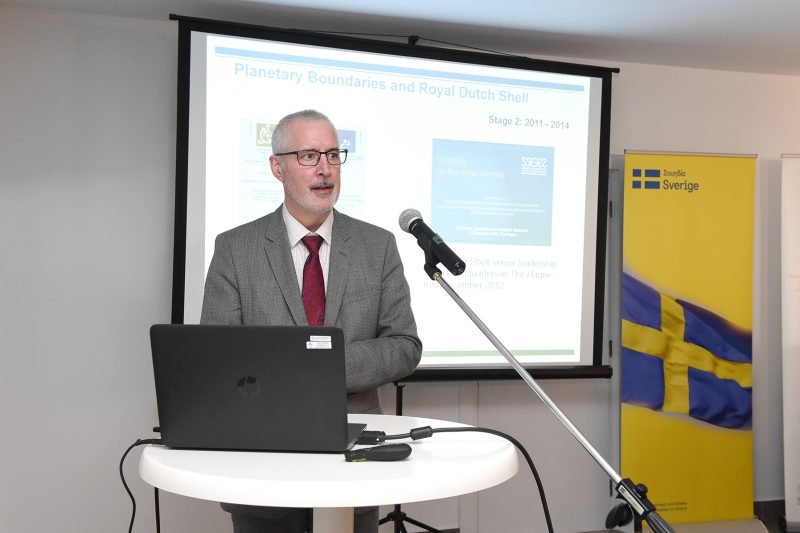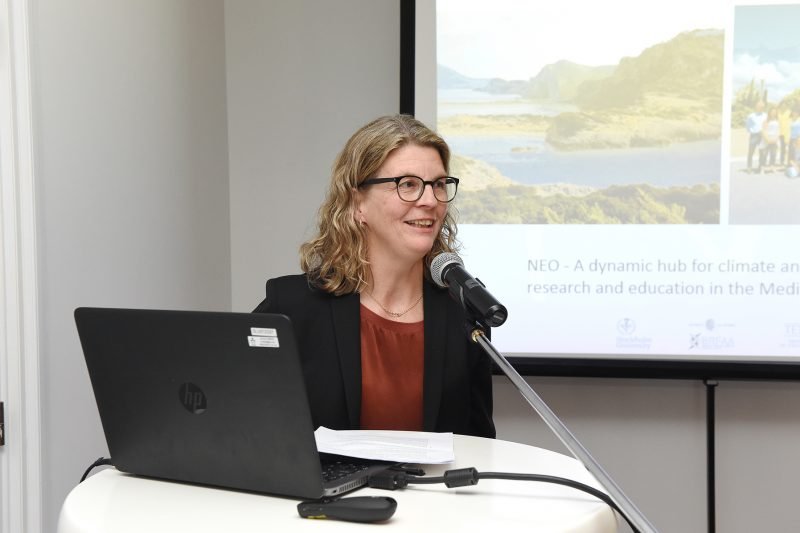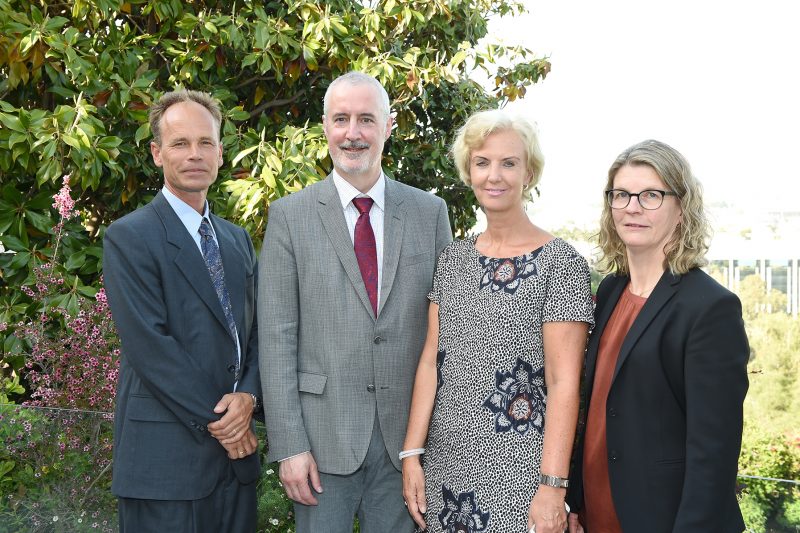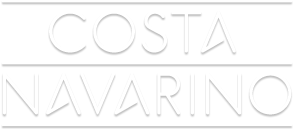“Bridging between science and business”
Navarino Environmental Observatory (ΝΕΟ) – “Bridging between science and business”
A case study of how the academic community and the private sector work together to promote an ecologically, socially and economically sustainable development
Navarino Environmental Observatory (ΝΕΟ) was presented as a successful case study, during a seminar that took place at the Residence of the Ambassador of Sweden, on April 27th. The objective of the seminar titled “Bridging between science and business” was to provide an opportunity for participants to discuss ways science can be brought closer to business and vice versa.

Main speaker Mr. Kevin Noone, Professor of Stockholm University elaborated on ways business and science are connecting and creating safe, authorized and repeated spaces for collaboration. According to Professor Noone ““Broader and deeper collaboration between business and science is absolutely necessary if we are to find solutions to today’s “wicked” problems. My experience working with a number of businesses and other organizations is that it takes time, effort, resources and repeated exposure on both sides to establish trust and develop a tradition of positive interaction. I have found that the returns on this kind of up-front investment can be tremendously valuable in terms of what can be accomplished when we work together.”
 Taking the stand, Ms. Karin Holmgren, Professor, Chairman of NEO Steering Committee presented the “NEO Journey”, as an example of how the academic community and the private sector can work together to promote an ecologically, socially and economically sustainable development. Navarino Environmental Observatory (NEO), a cooperation between Stockholm University, the Academy of Athens and TEMES S.A., the developer of Costa Navarino, is dedicated to research and education on the climate and the environment of the Mediterranean region. Located at Costa Navarino, NEO has developed into a dynamic hub where scientists from all over the world conduct frontline research, develop new tools and methods, as well as meet to exchange knowledge and ideas. Extended communication between academics and the local community in the wider Messenia region has helped to raise the awareness of global change, climate change and the interplay between local, regional, and global scales.
Taking the stand, Ms. Karin Holmgren, Professor, Chairman of NEO Steering Committee presented the “NEO Journey”, as an example of how the academic community and the private sector can work together to promote an ecologically, socially and economically sustainable development. Navarino Environmental Observatory (NEO), a cooperation between Stockholm University, the Academy of Athens and TEMES S.A., the developer of Costa Navarino, is dedicated to research and education on the climate and the environment of the Mediterranean region. Located at Costa Navarino, NEO has developed into a dynamic hub where scientists from all over the world conduct frontline research, develop new tools and methods, as well as meet to exchange knowledge and ideas. Extended communication between academics and the local community in the wider Messenia region has helped to raise the awareness of global change, climate change and the interplay between local, regional, and global scales.
“The mission of NEO is to develop the understanding and sustainable use and management of our natural resources. NEO research addresses several of the sustainable development goals of the United Nations Agenda 2030 as well as of the Paris Agreement. To push the boundaries of knowledge we need basic research. For society to benefit from our new insights we also need applied research. For research to lead to concrete actions, innovations and improvements in our use of the natural resources we need sound collaboration and dialogues between the academy, the business sector and the public. As such, NEO is a role model”, emphasized Professor Holmgren.
The H.E. the Ambassador of Sweden, Mrs. , endorsed the successful partnership among the Stockholm University, the Academy of Athens and TEMES S.A., as the Greek-Swedish collaboration represents concrete example of creative synergy between the private sector and the scientific community, aiming at developing strategies that focus on the adaptation to climate change and sustainable development.

